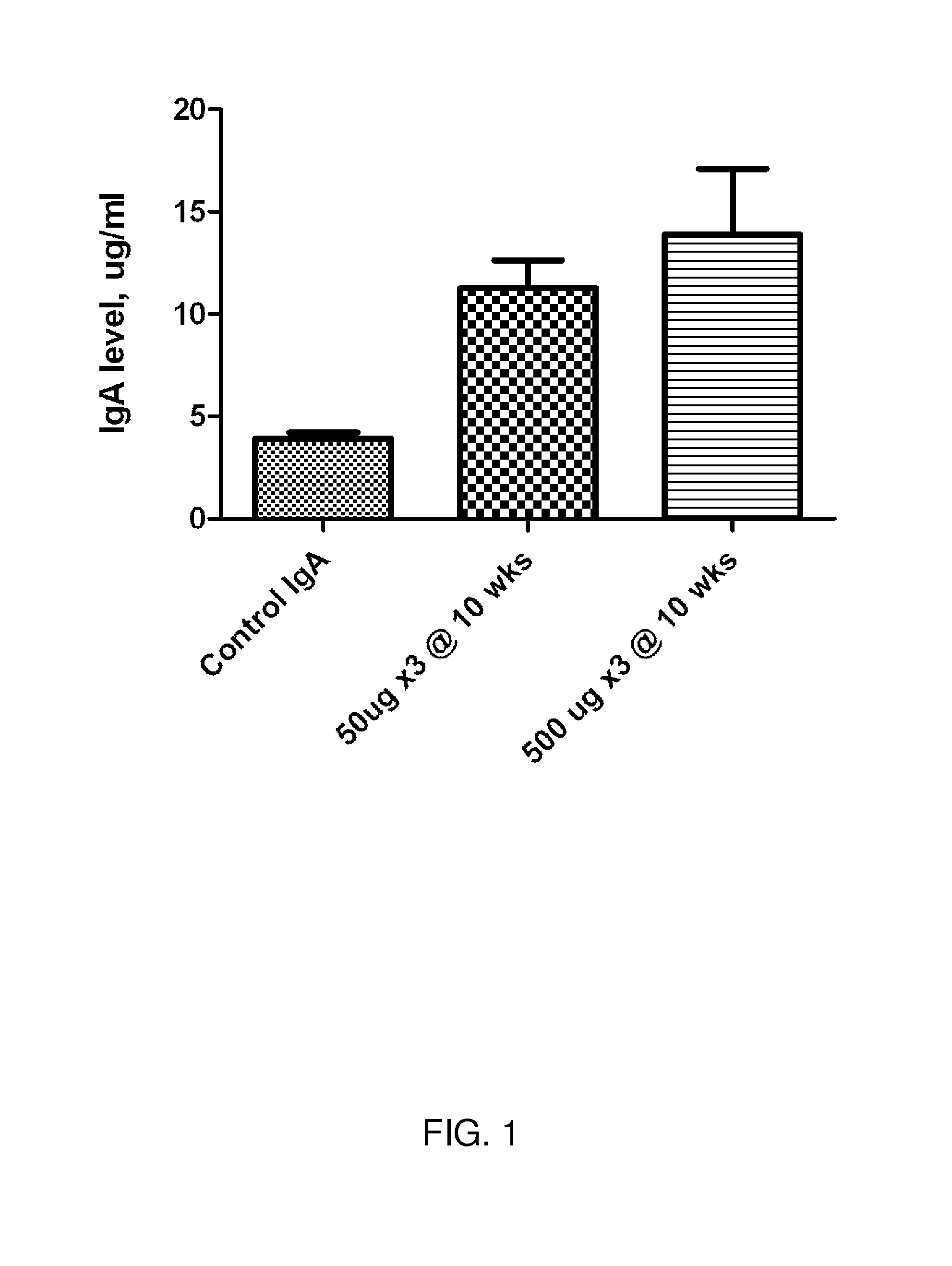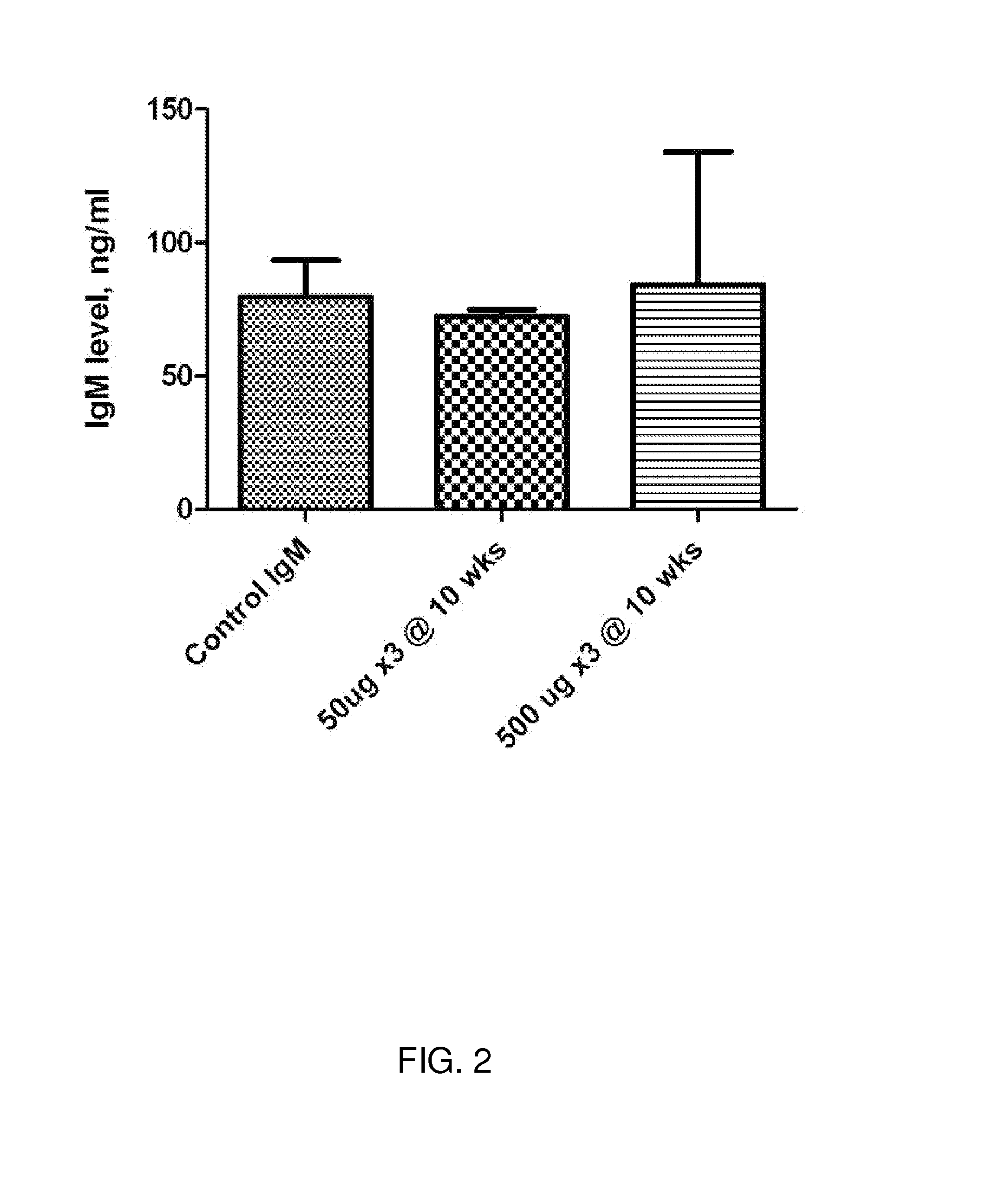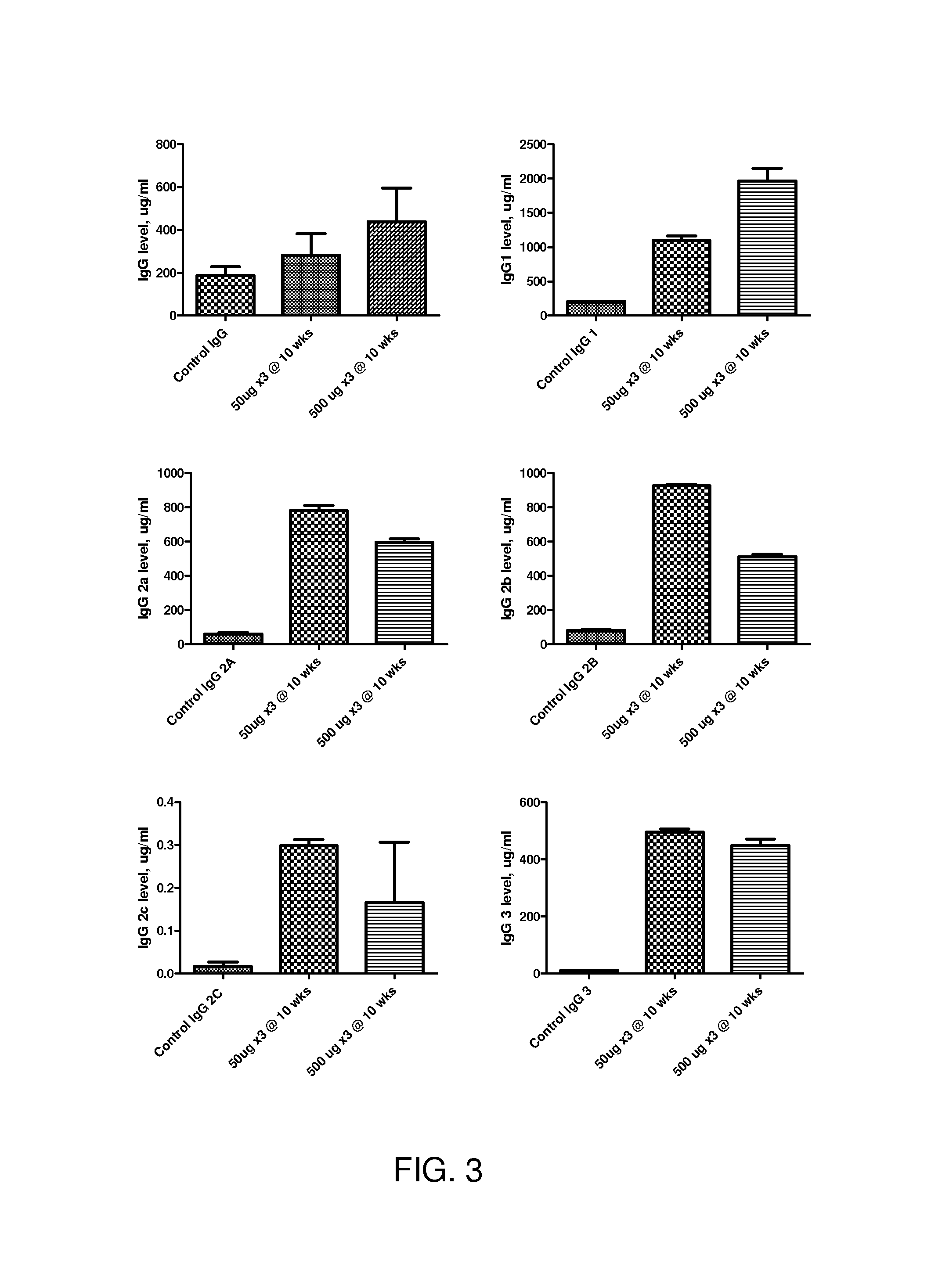Ureaplasma vaccine and antibody for prevention and treatment of human, animal and cell culture infection
- Summary
- Abstract
- Description
- Claims
- Application Information
AI Technical Summary
Benefits of technology
Problems solved by technology
Method used
Image
Examples
example 1
Perinatal Ureaplasma Infection and Brain Development
[0332]Utilizing a published murine model for chorioamnionitis, e13.5 day fetuses are infected with 5000 ccu of Ureaplasma or saline by direct infection. At e17.5 days, Ureaplasma's impact is evaluated between the groups on placental histopathology, blood, amniotic fluid, placenta Ureaplasma culture and PCR, and inflammatory mediators. There is also evaluation for evidence for Ureaplasma brain infection an inflammation on day e17.5, 6, and 18 wks after delivering including brain: Ureaplasma culture and PCR; inflammatory mediators; histopathology and histochemistry. Placenta histopathology is read by an expert in placenta pathology in a blinded fashion. One then evaluates pups born to mothers with Ureaplasma induced chorioamnionitis vs. pups exposed to saline in-utero for development of a neurologic or developmental phenotype during the 18 week observation. One employs standardized neurologic and developmental examinations by individ...
example 2
Development of a Ureaplasma DNA Vaccine for the Treatment of Mammalian Infection
[0333]Methods and Exemplary Data: The inventors have developed the methods to create an Ureaplasma vaccine and evaluate the efficacy and its subsequent antibody production. Specifically: Vaccine Development: In developing this DNA vaccine the Ureaplasma gene of interest was cloned and inserted into a pVAX1 vector. Briefly, the DNA fragment responsible for the multiple antigen binding (MAB) region of Ureaplasma serotype 6 (386 bp) was generated by PCR with specific primers: sense (TG TTC ATA TTT TTT ATC AG; SEQ ID NO:2); antisense (CCAAATGACCTTTTGTAACTAGTA; SEQ ID NO:3). In order to increase the efficacy of antigen expression, a Kozak codon (ANNATGG; SEQ ID NO:1) was inserted at the beginning of the sense primer. The stop codon used was that provided in the vector (TAG). The DNA fragment from the PCR was then inserted into the vector pVAX1 (Invitrogen). This vector contains an early CMV promotor and a bov...
example 3
Perinatal Ureaplasma Infection and Suckling Mouse Brain Development
[0352]Ureaplasma have the following characteristics: small (0.1-0.85 um); devoid of a cell wall (insensitive to penicillin and gram stain); need urea for growth and produce urease (Pollack, 1986); not folic acid synthesizers (not susceptible to sulfonamides or trimethoprim). The most sensitive method of isolating Ureaplasma is inoculation in to liquid medium, detection by urease activity, and subculturing to agar for colony identification (Robertson, 1978; Taylor-Robinson, 1989; Taylor-Robinson et al., 1967; Taylor-Robison and Gourlay, 1984; Taylor-Robinson, 1989). Simple and rapid methods of Ureaplasma identification such as PCR have been developed and confirm culture (Abele-Horn et al., 1996; Blanchard et al., 1990; Blachard et al., 1993; Cunleffe et al., 1996; Willoughby et al., 1990), but commercial kits are not yet readily available. The diagnosis of Ureaplasma infection is complicated by its lack of gram staini...
PUM
| Property | Measurement | Unit |
|---|---|---|
| Electrical conductance | aaaaa | aaaaa |
| Time | aaaaa | aaaaa |
| Time | aaaaa | aaaaa |
Abstract
Description
Claims
Application Information
 Login to View More
Login to View More - R&D
- Intellectual Property
- Life Sciences
- Materials
- Tech Scout
- Unparalleled Data Quality
- Higher Quality Content
- 60% Fewer Hallucinations
Browse by: Latest US Patents, China's latest patents, Technical Efficacy Thesaurus, Application Domain, Technology Topic, Popular Technical Reports.
© 2025 PatSnap. All rights reserved.Legal|Privacy policy|Modern Slavery Act Transparency Statement|Sitemap|About US| Contact US: help@patsnap.com



